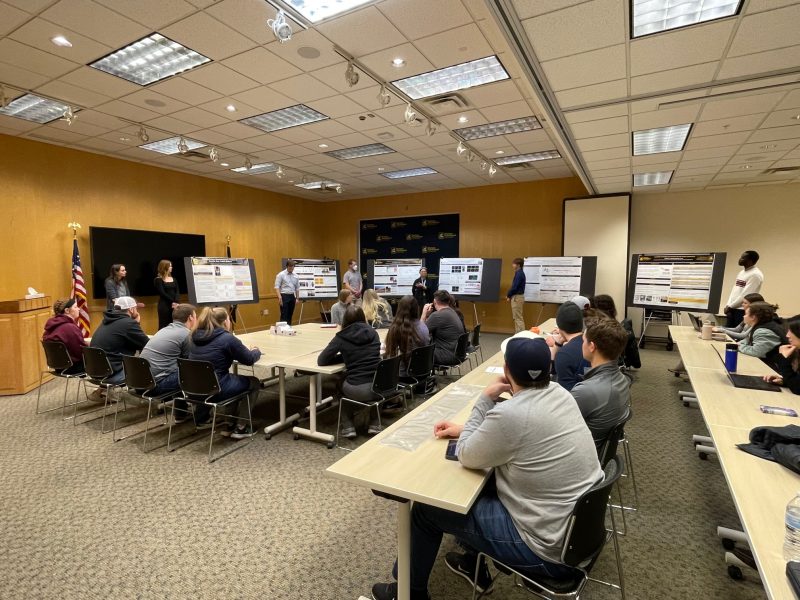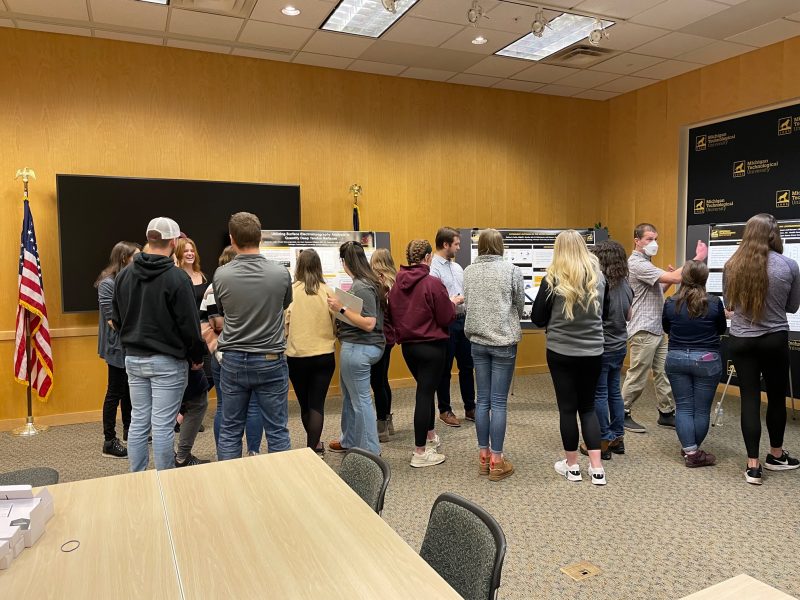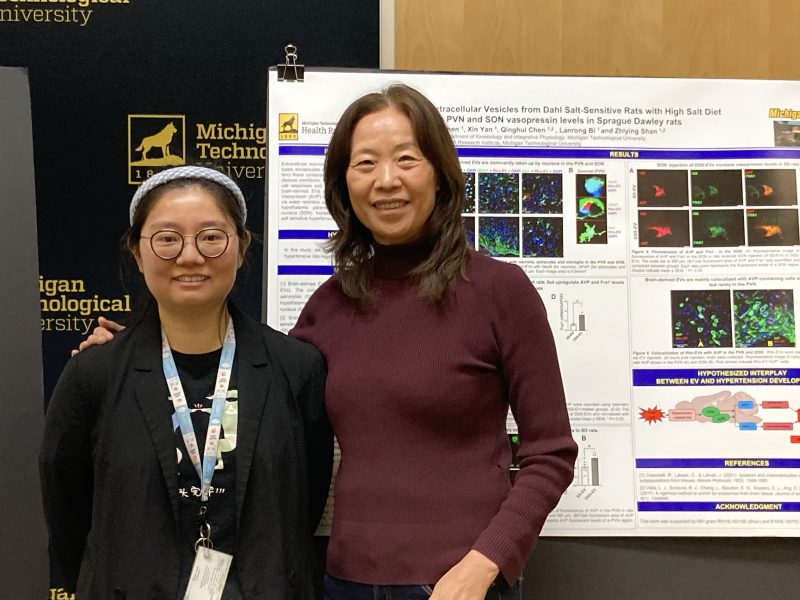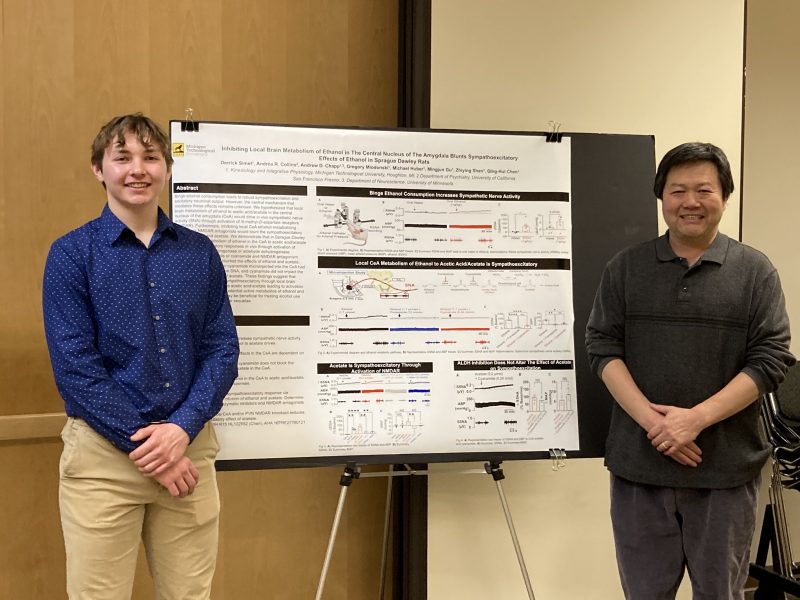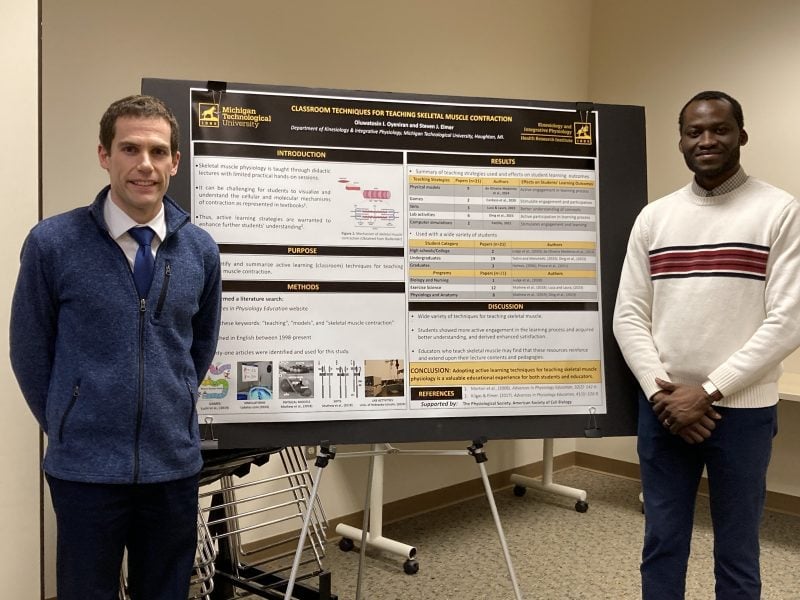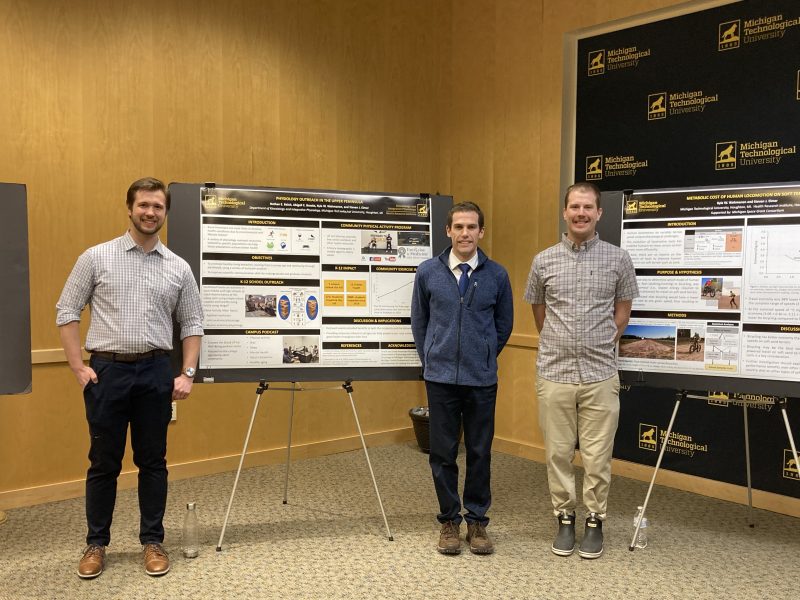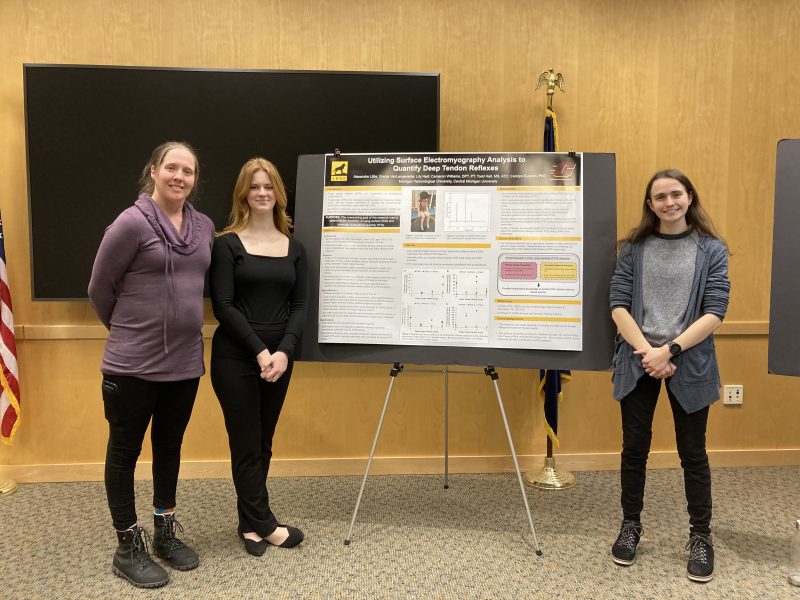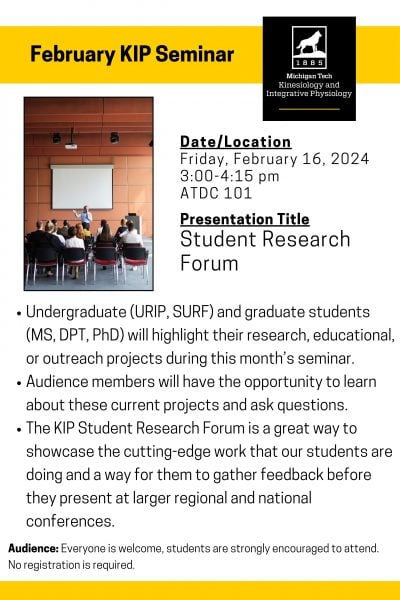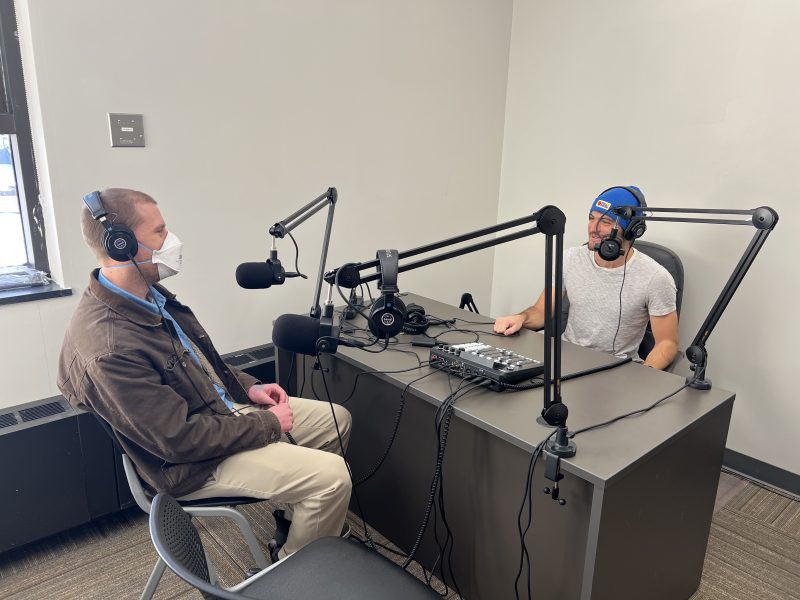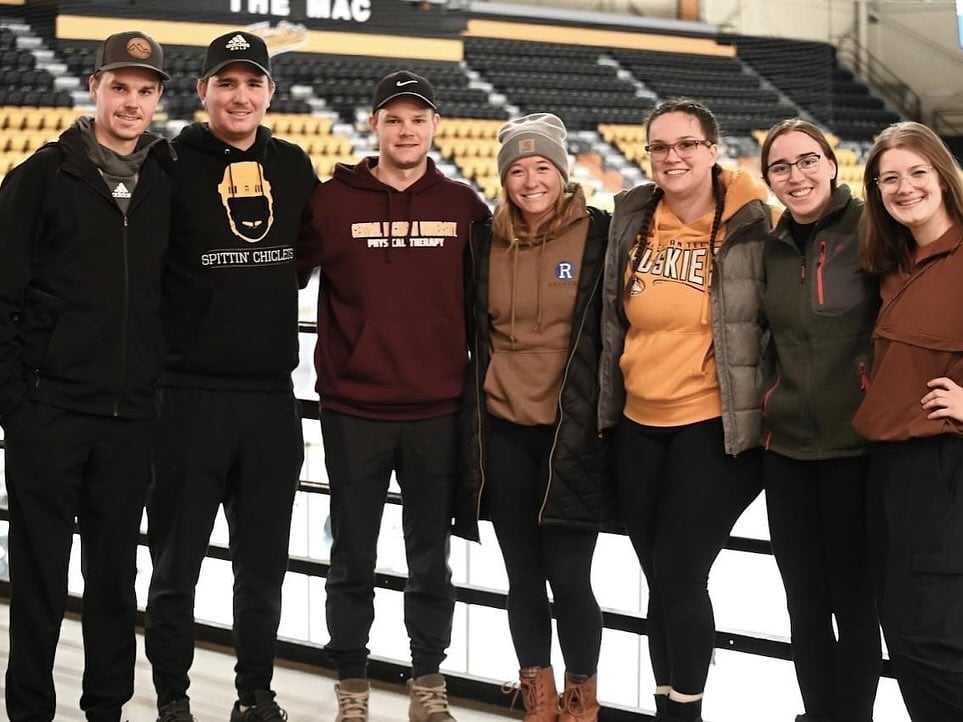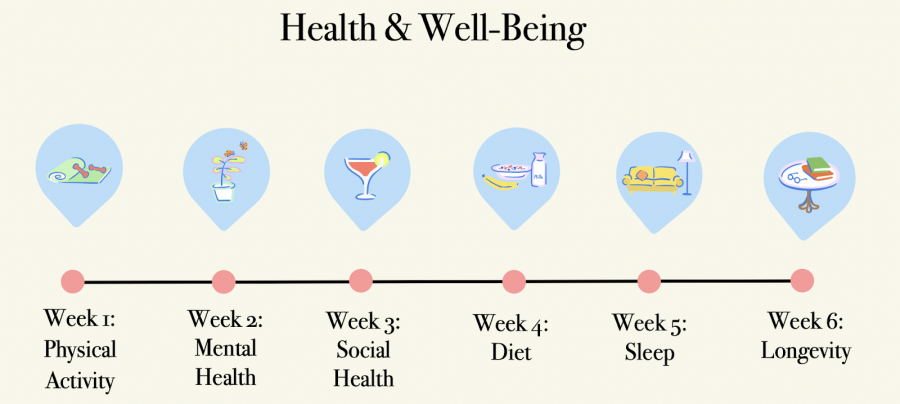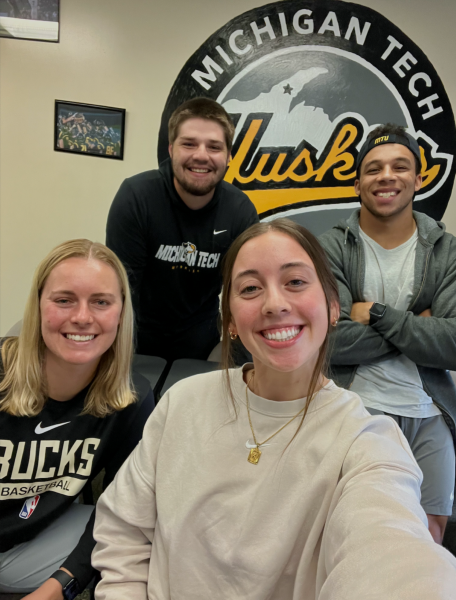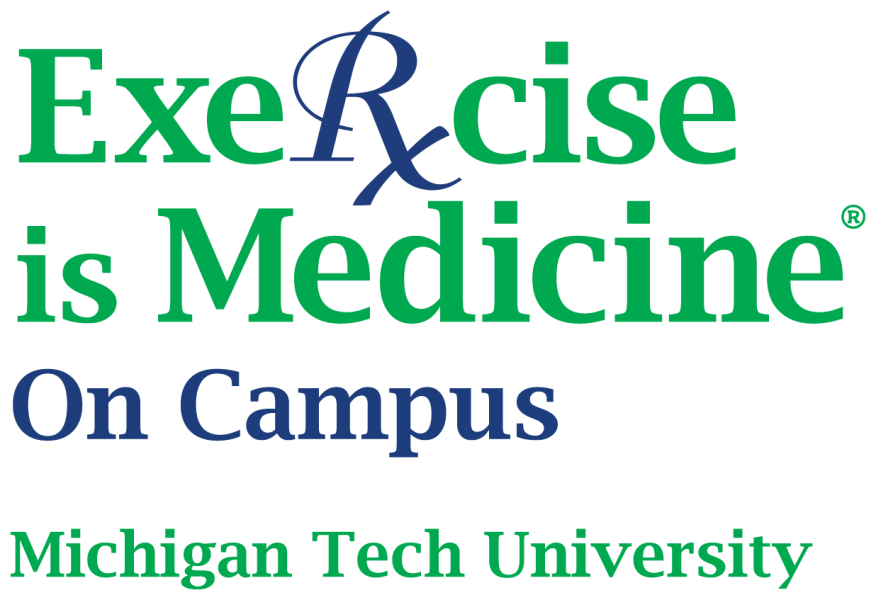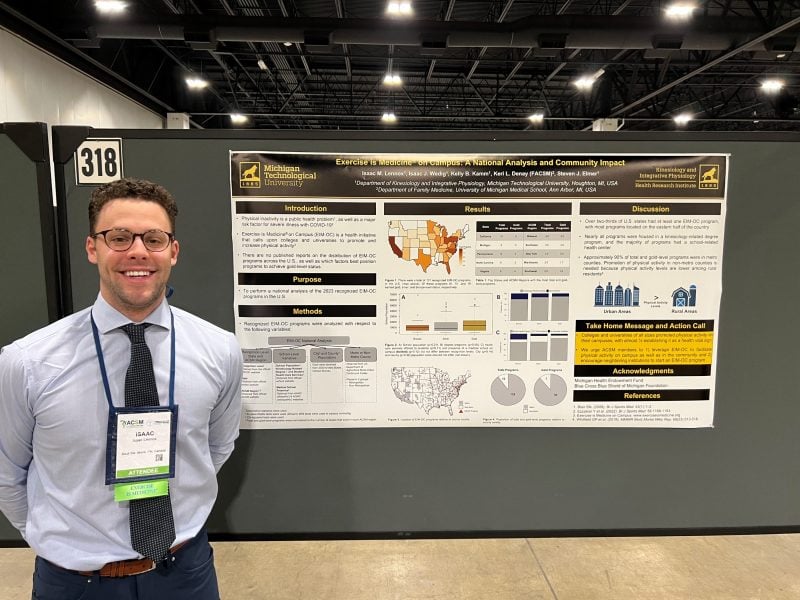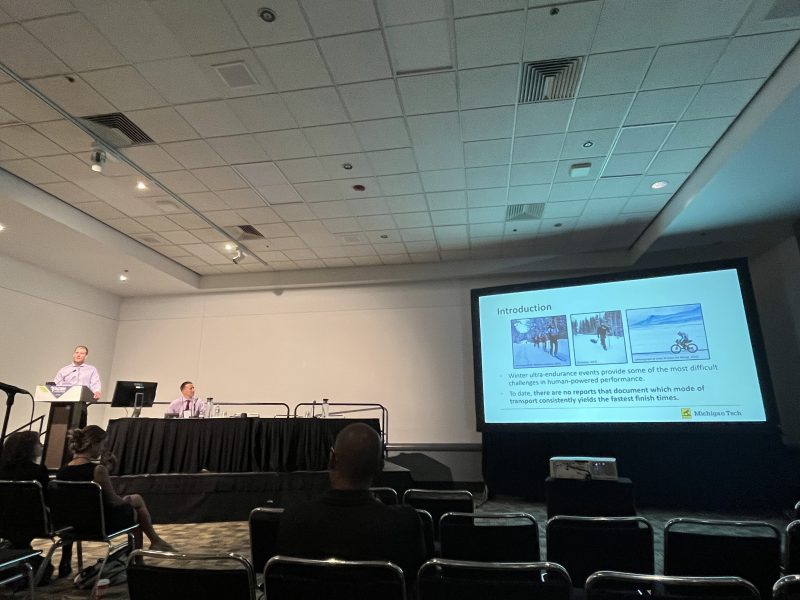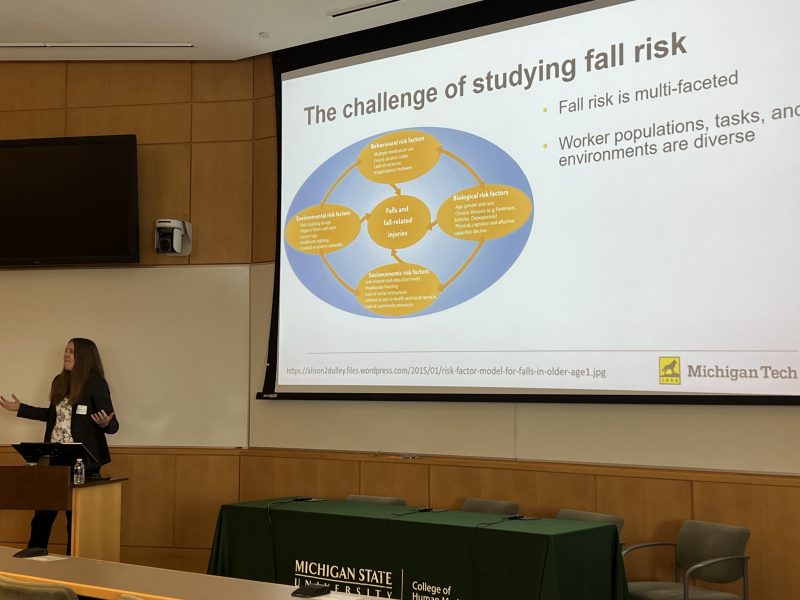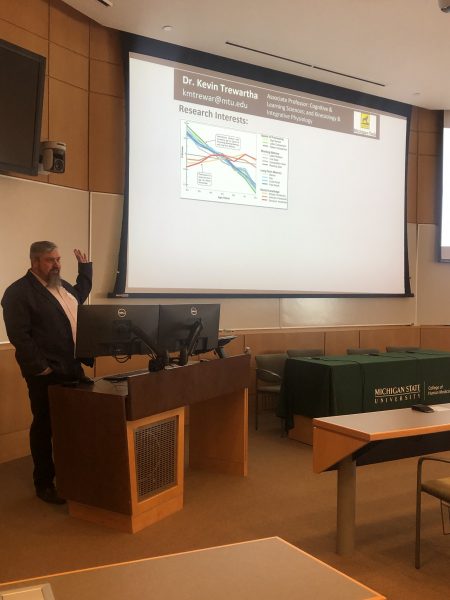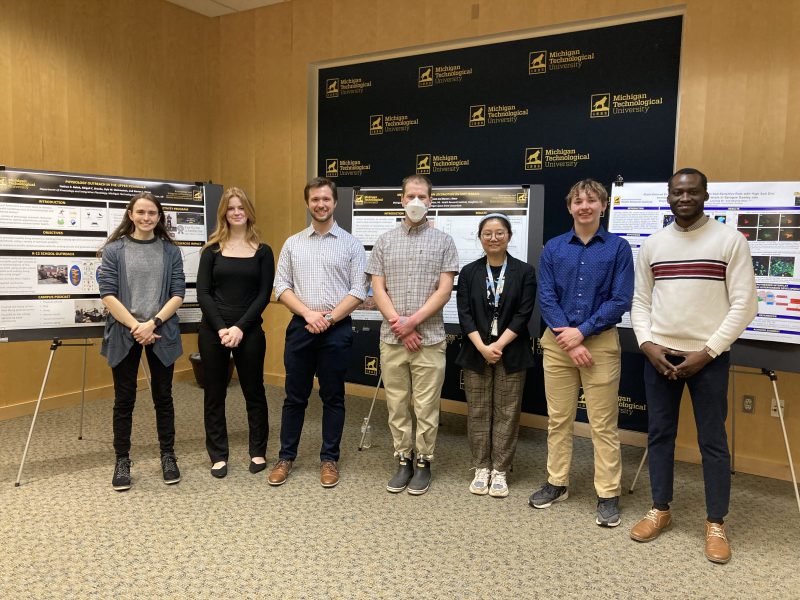
The MTU KIP department hosted its annual Student Research Forum on February 16, 2024 as part of its February department seminar series. Students and faculty from the Department of Kinesiology and Integrative Physiology, as well as the Central Michigan University Doctorate of Physical Therapy Program attended. Several undergraduate and graduate students presented their research, educational, and outreach related projects.
As part of the thematic style poster session, students first delivered short, 3-minute oral presentations to the audience and then gave more in-depth explanations of their projects to attendees that circulated through the posters. The student presentations were excellent, and students were commended for their work and level of professionalism. Importantly, the questions and feedback that students received will help them move their projects forward and prepare to present their work at regional and national conferences later this Spring.
To help support student travel to conferences, please consider contributing to our student travel fund through our giving opportunities page.
